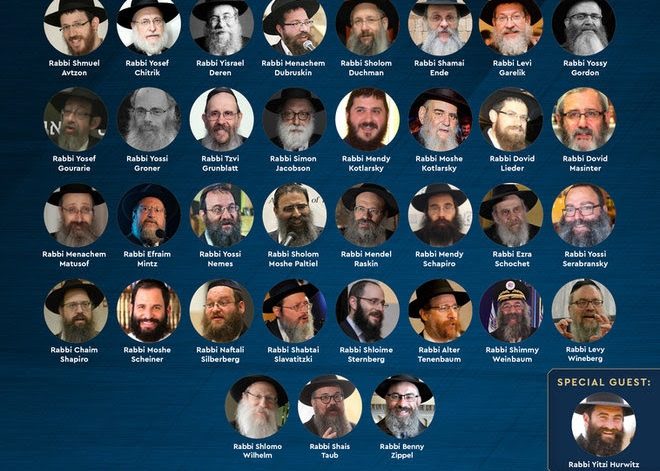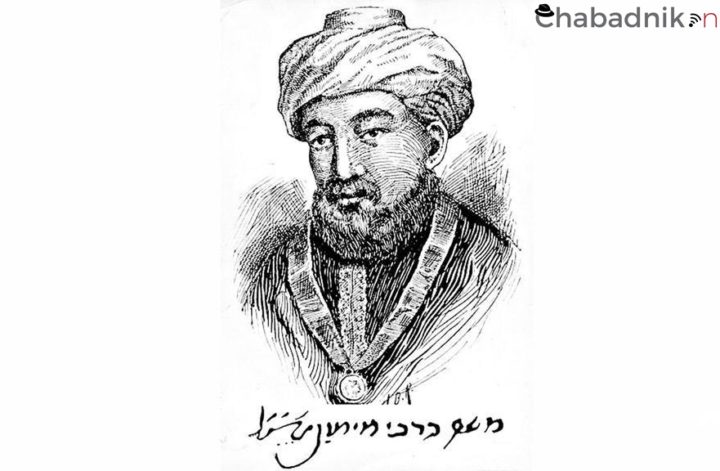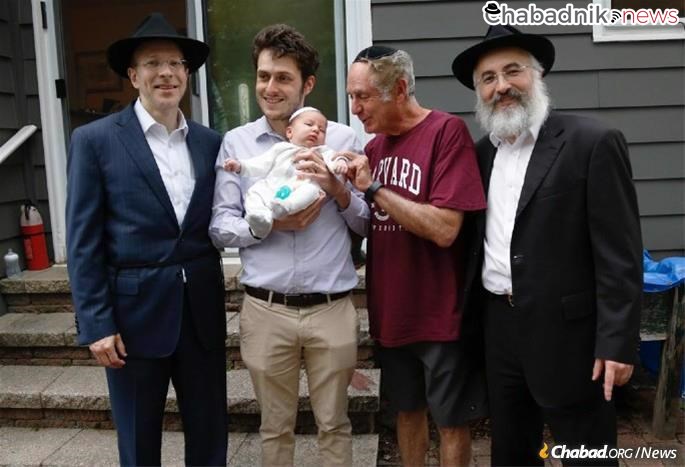70 chaplains and the Aleph Institute make the holiday possible on hundreds of bases
It’s that time of year again, when the days are short and the nights long. Yes, there are lights, brightening up the darkness and the cold. But for many Jews, it’s a difficult time to find representation and connection, especially on U.S. military bases, where Jewish service members, if they’re lucky, have just the bare minimum of a menorah to celebrate the holidays. With only 70 Jewish chaplains across the entire U.S. military, it’s not easy for service members to be loud and proud about their Jewish identity.
“Non-Jewish chaplains are not always thinking of the Jewish service members,” said Rabbi Elie Estrin, an Air Force Reserves Chaplain and Military Personnel Liaison for the Aleph Institute. What’s more, “Jewish service members often don’t want to ask for things for themselves because they don’t want to stick out. They don’t want to be the one with extra needs.”
But for others, standing out is their calling.
One of the most beneficial training experiences for Chaplain Levy Pekar, a U.S. Air Force Captain, was his time spent as a Chabad rabbinical student walking around handing out Chanukah menorahs and candles, and teaching strangers to celebrate their Judaism.
“I don’t have the same inhibitions someone else might have,” said Pekar. Which is a good thing, as he certainly stands out at Kadena Air Base in Okinawa, a small island off the coast of Japan with “maybe 100 Jews,” he estimates.
“They see me with my yarmulke; they see me with my beard. People who haven’t seen another Jew in years immediately come up to me,” he said. Often, he finds they haven’t even connected to Judaism in years and suddenly, they’re regulars at Shabbat dinner.
Standing out is what Chanukah is all about, according to Pekar: “Chanukah is about bringing the light and bringing the pride. It’s about stepping up, and saying I’m a Jew and I’m proud.”
His Chanukah plans this year are modest: The community is always changing, and he’s only been stationed there three months out of his three-year assignment. He and his wife, Bassy, expect anywhere from five to 50 people at their party on Sunday night. But they (and their one-and-a-half-year-old daughter, Nessa) still plan to host candle-lighting and traditional noshes every night of the holiday for whoever is interested.

‘There Is So Much Opportunity to Do Good’
For Chaplain Michoel Harari, the magic of the holiday is in its authenticity and the small moments.
“At the end of the day, there’s lights and colors and things like that, but then there’s emmes (‘truth’),” said Harari. “Chanukah, what’s it all about? We come together like a small family. In my experience, for the Jewish soldiers, nothing compares to them coming over and making latkes from their grandmother’s recipe, and farbrenging and playing dreidel. The heart is there.”
The smallest actions and words matter most at Harari’s new station at Fort Riley, outside of Junction City, Kan. It’s an isolated area—the nearest grocery store with kosher meat and cheese is in Kansas City, Mo.—but he feels like he makes a bigger impact this way; the only Chabad emissary (shliach), not just for service members but for civilians in the area.
“Here, we’re able to affect thousands of thousands of soldiers and their families with just a good word, with Kiddush Hashem,” said the captain, who is attached to the 16th Infantry Regiment. “My kids are able to show people how a Yid walks, how a Yid talks. There is so much opportunity to do good.”
He often remembers what Rabbi Jacob Goldstein, the “original” Chabad chaplain and the man who greatly inspired Harari’s own path, told him, which he heard himself from the Rebbe: “Be there for just one Jew, and it can change whole cities.”
Harari, his wife Mishi and their six children are trying to go all out for Chanukah and reach every Jew they can. They’re hosting a public menorah-lighting and party on Sunday night, and awaiting a mitzvah truck that will stop at the base on its way from Los Angeles to show Jewish service members their support. Harari will also attend the public menorah-lighting at the capital on Monday night with Kansas Gov. Laura Kelly.

No Soldier Should Ever Feel Forgotten
To supplement celebrations on bases, the Aleph Institute sends thousands of boxes with a variety of religious articles to hundreds of bases, according to Gina Amsalem, Aleph’s ordering manager, for holidays and for regular occasions throughout the year.
This time, the customizable boxes are filled with all things Chanukah. As of Dec. 11, Aleph had sent out 979 menorahs, 1,463 boxes of candles, 1,347 dreidels and 1,360 chocolate bars. Bases in the states can get Jewish military calendars, and Aleph even sends copies of the book GPS Guide for the Soul.
“We still have more orders coming through,” said Amsalem. “We will be sending these boxes until the last possible day. We’ll overnight them if we have to … to make sure no soldier ever feels forgotten.”
And the chaplains work hard to bring awareness to everyday matters, like kashrut and limitations on Shabbat.
“It’s my job as a chaplain, as a rabbi, to inform unit command teams on base of different rules and regulations inside Judaism,” said Harari.
“I’ve only seen support from command teams, from commanders, they wish for their soldiers to be able to serve Hashem the best they possibly can while within in the military,” he said, because “General Marshall said, that planes and bombs and tanks win battles, but the spirit of the soldiers is what wins the war.”
The idea rings especially true during Chanukah, he notes: The Maccabees were small; their weapons and fighting style unsophisticated, but they had emunah—“faith.”

In a way, Chanukah is the premier holiday for chaplains, according to Pekar: They’re both about lighting up the darkness. He is the chaplain for the Maintenance Group at Kadena, which consists of about 1,000 airmen, and visits all of them every week, listening to their stresses and worries, and helping them find the light.
“I teach people to find strength within, to be spiritually resilient,” he said. “Chaplains help people through the darkest moments of their lives.”
Estrin agrees; he has seen the joy that holiday celebrations can bring to a soldier, sailor, marine or airman, and says that being successful in the military relies on having a strong spiritual core.
“It’s really, really important to be able to celebrate your Judaism,” said Estrin, who is leading the Chanukah programs at Patrick Air Force Base and the U.S. Southern Command in Florida. “The flag is stronger when someone has the capability to stand up, and is able to express their religion and their humanity.”




